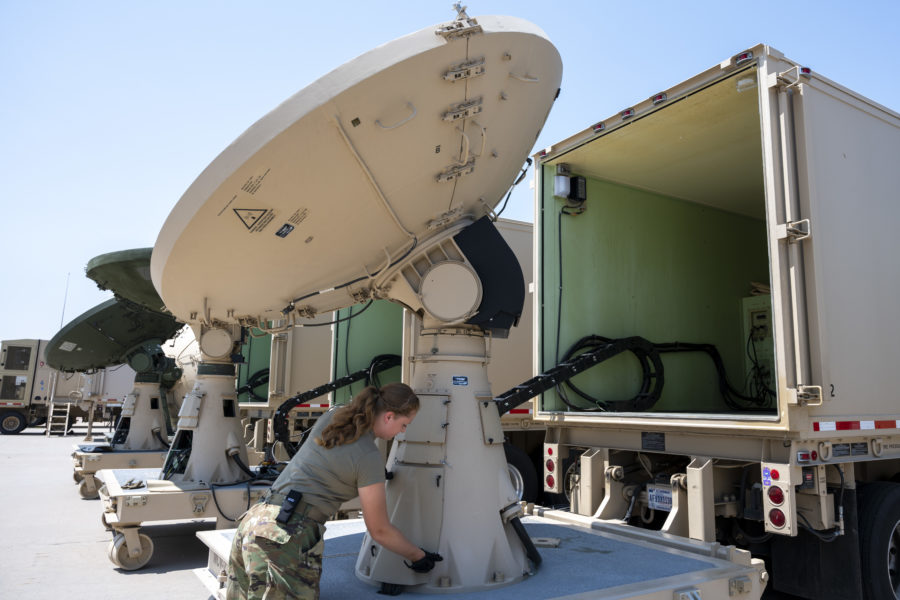President Joe Biden’s administration is not backing off its opposition to the creation of a Space National Guard, even as a group of lawmakers continue their push for it.
In a statement of administration policy on the Senate’s version of the 2023 National Defense Authorization Act released Oct. 18, the White House Office of Management and Budget once again made clear that it believes a Space Guard is unnecessary and instead touted its proposal for a hybrid “Space Component” that includes full-time and part-time Guardians.
Unlike policy statements from last year, however, the OMB went further in arguing that all space missions currently performed by the Air National Guard are federal in nature—meaning states have no need for a Space National Guard.
“DOD’s space missions currently performed by members of the National Guard are solely Federal missions and should be migrated to the Space Component over time,” the policy statement reads.
The White House’s argument, in effect, is that there are no specific missions for which states need military space forces, so those should be consolidated on the federal level.
That’s a new element of the administration’s argument against the Space Guard, an argument it first started making last year when a proposal to establish a Space National Guard was included in the House’s version of the NDAA.
In its policy statement on that NDAA, the White House contended that establishing a Space National Guard would cost up to $500 million annually, an estimate that proponents of the new Guard argued was based on inaccurate assumptions.
This year, OMB dropped the $500 million annual cost estimate from its critique, instead simply noting the “additional overhead of a separate component.”
On the opposite side of the issue, those in favor of a Space National Guard have argued that the cost would be only several hundred thousand dollars—enough for cosmetic changes such as name tape, unit flags, and signs.
And while the White House is arguing that space missions are all federal, Space National Guard boosters have claimed that many Guard members serve in part because of the state-level missions they’re able to contribute to, such as disaster relief or humanitarian aid.
Ultimately, the proposal for a Space Guard was dropped from last year’s NDAA as top lawmakers drafted a compromise bill outside of the usual conference process. But the issue is back again in this year’s authorization act.
In June, the House Armed Services Committee approved a provision creating the Guard in its markup of the NDAA. That provision was included in the bill the entire House passed in July.
On the Senate side, the Senate Armed Services Committee did not include the Space National Guard in its markup, a move that the White House said in its policy statement that it “appreciates.” But a group of seven Senators have introduced an amendment that would establish an SNG. That bipartisan group includes Sen. Dianne Feinstein (D-Calif.) and Sen. Marco Rubio (R-Fla.), who introduced the Space National Guard Establishment Act back in May, alongside 10 other co-sponsors.
The fate of the NDAA amendment remains to be seen. It is one of roughly 900 that have been proposed on the Senate floor. Lawmakers will adopt some of those amendments in a package, actually debate and vote on a few, and simply drop the rest, but those actions likely won’t happen until after the November midterm elections.
